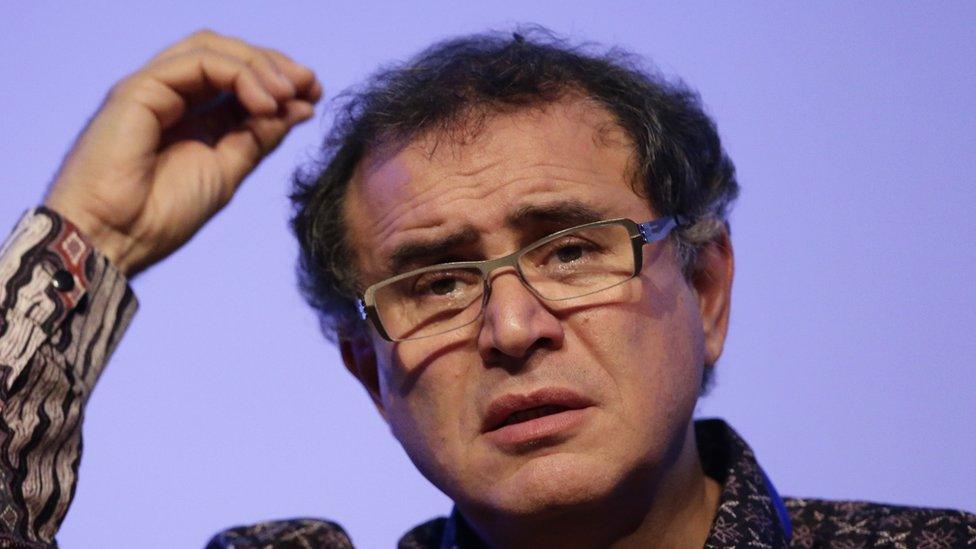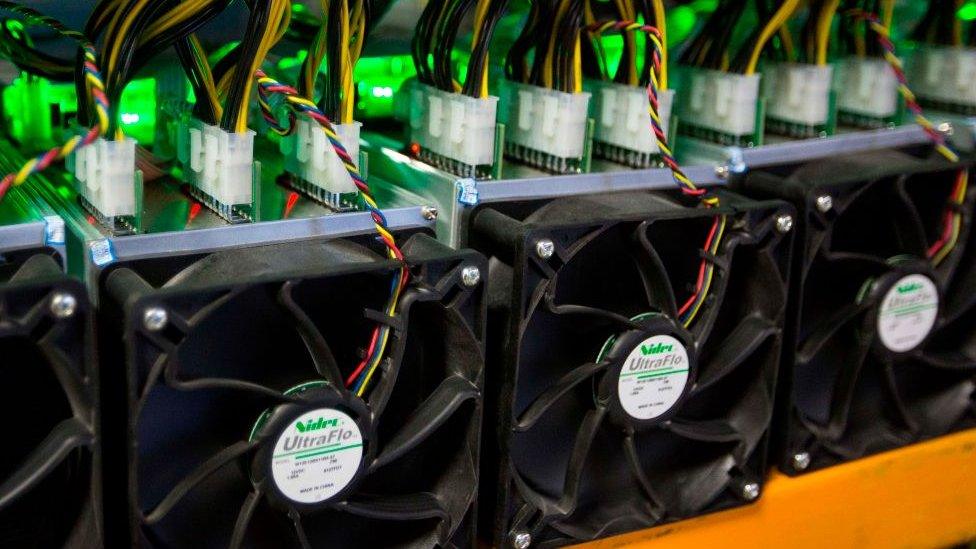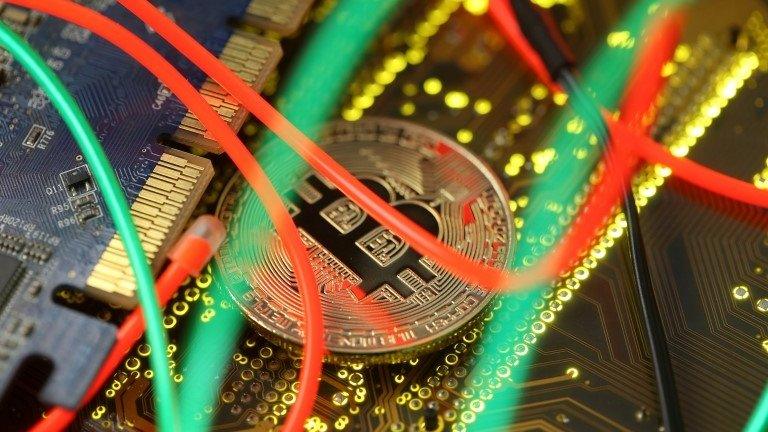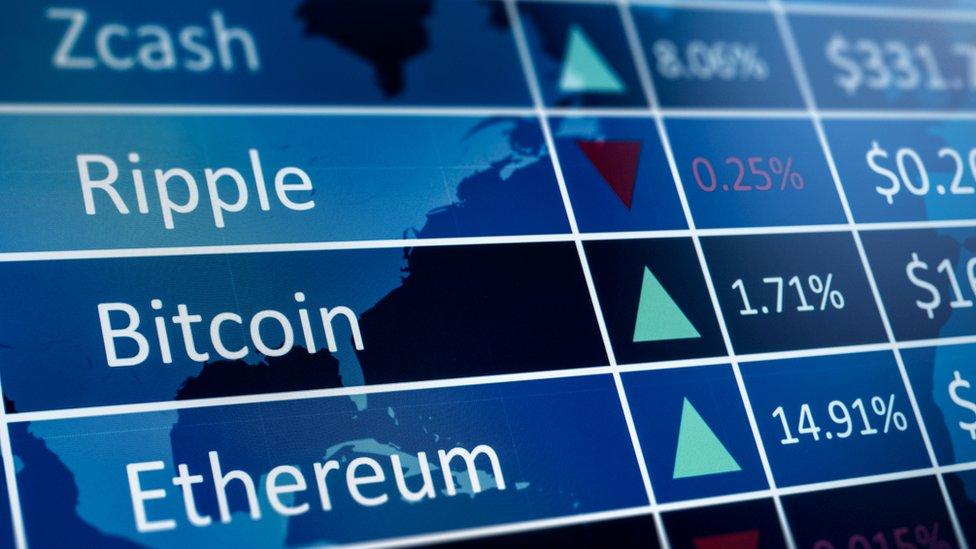'Dr Doom' economist Nouriel Roubini in Bitcoin battle
- Published

Outspoken economist Nouriel Roubini, nicknamed Dr Doom for his gloomy warnings, has caused a stir with his latest attack on Bitcoin and its fellow cryptocurrencies.
Prof Roubini, who foresaw the financial crisis, says Bitcoin is "overhyped".
At a summit in Taiwan on Tuesday, he likened it to a "cesspool".
But his sparring partner at the event, who runs a cryptocurrency exchange, has angered the professor by blocking the release of video of the event.
Arthur Hayes, the chief executive of the BitMex exchange, controls the rights to footage of their debate, which took place during the Asia Blockchain Summit.
In a post on Twitter, Prof Roubini said he "destroyed" Mr Hayes in the debate and called him a "coward" for not making it available.
Allow X content?
This article contains content provided by X. We ask for your permission before anything is loaded, as they may be using cookies and other technologies. You may want to read X’s cookie policy, external and privacy policy, external before accepting. To view this content choose ‘accept and continue’.
During the debate, Prof Roubini, a long-standing critic of Bitcoin, argued it was destined to end up in the "museum of failed coins" with all the other digital currencies.
He said Bitcoin was "not secure, not decentralised and not even scalable".
Mr Hayes countered that Bitcoin had made "impressive" progress in its decade of existence, adding that "Bitcoin and crypto markets are the only real free market left in the world".
After the event, Mr Hayes told Bloomberg that Prof Roubini was merely envious of Bitcoin's success.
He said: "He's a hater. He's a no-coiner - someone doesn't have any Bitcoin and watched the price rocket in their face over the past few years."
Mr Hayes said he would be releasing highlights of the debate at a later date.
Bitcoin, seen as an alternative currency, exists largely online. It is not backed by governments or traditional banks.
Bitcoins are created through a complex process known as "mining" and then monitored by a network of computers across the world.
- Published28 June 2019

- Published9 April 2019

- Published7 March 2019
